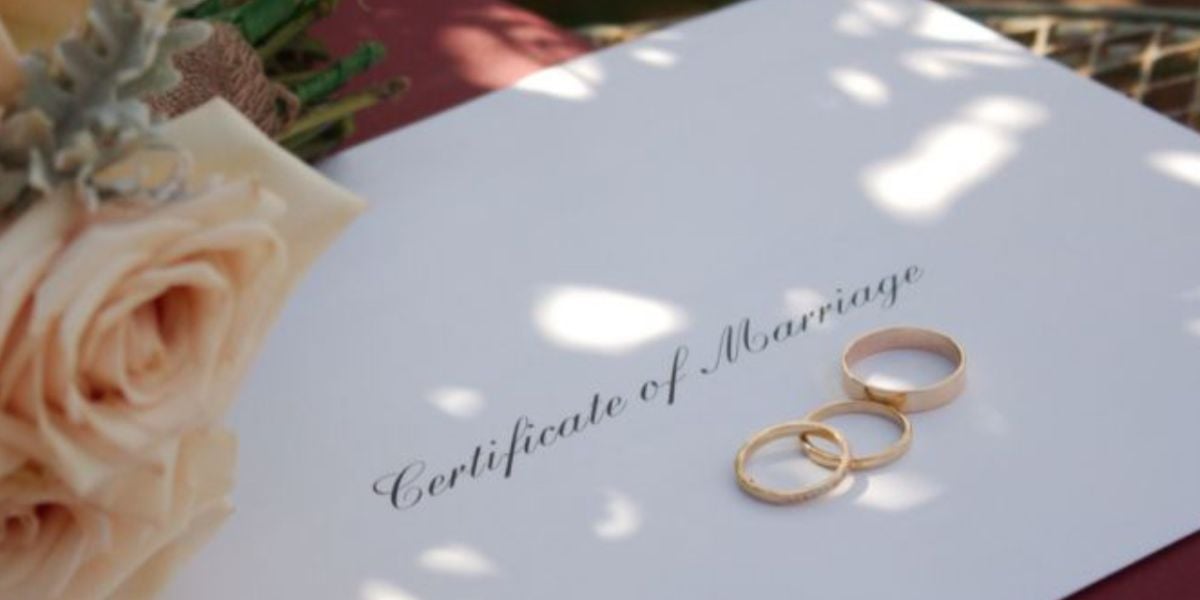
How do I get married in Switzerland? What are the requirements for foreign nationals? What's the cost? If you're considering getting married in Switzerland, these are likely some of your concerns. While the process isn't overly complicated, there are specific procedures to follow. This article will provide you with the details.

Conditions for getting married in Switzerland
Basic requirements
As in many countries, to be eligible to marry someone, you must:
- Be at least 18 years old;
- Be capable of discernment;
- Not be already married or in a "registered partnership" (a term used in Switzerland to designate an official union contract outside marriage).
Important:
You cannot marry someone who is too closely related, such as a sibling or half-sibling. Individuals under guardianship must obtain their guardian's consent to marry.
Marriage for all
In 2021, Switzerland voted to legalize same-sex marriage, which has been possible since 2022.
Same-sex couples who were previously in a registered partnership can convert it to a marriage. To do this, you need to submit a declaration of conversion (from registered partnership to marriage) to the registrar in person.
Getting married in Switzerland as a foreign
If you are a foreign national coming to Switzerland to get married
Depending on your nationality, you may need a visa to enter Switzerland and get married.
You don't need a visa if you are a citizen of the European Union (EU) or the European Free Trade Association (EFTA).
On the other hand, you will need a visa to enter Switzerland if you are from a non-EU country.
If you do need a visa, you must submit your application to the Swiss embassy or consulate in your country of residence.
You're already living in Switzerland and want to get married here
If you live in Switzerland, you likely already have a residence permit, so you don't need an additional visa. You'll just need to provide the necessary documents for the marriage.
However, if both spouses are foreign nationals and not residents of Switzerland, you can only get married in Switzerland with authorization from the cantonal supervisory authority.
Procedures for getting married in Switzerland
Contact the civil registry office in your canton of residence.
The civil registry office for the residence of one of the future spouses handles the marriage preparation process. To find out which office is responsible, enter your place of residence here.
You must personally inform the registrar that you meet all the marriage requirements.
The registry office will then provide you with a list of the documents you need to submit to complete your file.
What documents do I need to get married in Switzerland?
As a general rule, the following documents are required:
- An identity document;
- A recent certificate of residence;
- A document stating your marital status (certificate of celibacy or document attesting to the dissolution of your last marriage);
- A document proving the legality of your stay in Switzerland;
- The "Application for marriage preparation" form (that you can request from the Registry Office).
If you have children together, you'll also need to provide documents related to their birth, sex, name, and parentage, such as their birth certificate and any documents establishing the ties.
Good to know:
Documents must be no more than six months old and should be accompanied by a certified translation into German, French, or Italian.
Certificate of marriage authorization
As mentioned earlier, you must submit and sign the marriage preparation form in person at the registrar's office.
After completing these formalities, the registrar will review your request to see if you meet the requirements to marry in Switzerland. You will then receive a confirmation.
Good to know:
The authorization to marry is valid for three months only.
Marriage costs in Switzerland
The cost of a wedding in Switzerland can vary depending on the services provided by the registrar. Generally, a civil wedding costs between CHF 300 and 400, covering document preparation and the civil ceremony.
The cost may be higher if you want to marry on a Saturday or have special requests, such as having the ceremony somewhere other than the town hall.
For a religious ceremony, the cost will depend on your religious community and the arrangements you make.
Celebrating your wedding in Switzerland
Civil marriage
Civil weddings in Switzerland can take place at the registry office or, in some cases, at a location of your choice. For example, home weddings may be allowed for elderly or sick individuals. Some cantons permit weddings at specific locations, like public parks, private gardens, or historic sites, but this typically requires special authorization and is subject to certain conditions. There may also be an additional fee if you choose to have the ceremony at a venue of your choice.
Good to know:
Unlike the preparatory marriage procedure, you can choose the civil registry district where you want to marry.
The civil marriage ceremony must be attended by two witnesses who are of legal age and capable of understanding the proceedings. They will need to sign the marriage register.
After the ceremony, you will receive a "marriage certificate," which confirms the names of the spouses before and after the marriage, along with the place and date of the ceremony.
Religious marriage
Religious weddings are only permitted after the civil ceremony.
Beforehand, you will need to meet with the leader of your religious community and complete a marriage preparation program. This might include premarital counseling, courses on married life, discussions on spirituality, and more.
You'll need to arrange the date and venue with your community leader. Depending on your denomination, the ceremony may involve prayers, sacred readings, religious songs, blessings, sermons, and the exchange of vows.
Wedding receptions in Switzerland
Whether the wedding is just a civil ceremony or includes both civil and religious elements, it's traditional to have a wedding reception afterward. This is usually a festive dinner.
In Switzerland, wedding receptions are often held at various venues, including hotels, restaurants, reception halls, or even at home.
Meals, entertainment, and speeches are key features of the celebration, with some traditions still being observed, such as cutting the cake, tossing the bride's bouquet, and performing the traditional Swiss dance known as the "bride and groom waltz," along with other family rituals.
Like in many cultures, guests often bring gifts for the bride and groom and extend their best wishes.
Post-wedding formalities in Switzerland
After the wedding, your new civil status will logically be "married".
What name should I take after the wedding?
Under Swiss law, each spouse may:
Keep his or her own name: If you don't make a specific declaration, you automatically keep your current name. Note that spouses who keep their names choose which of their two unmarried names will be given to their children.
Declare that you wish to bear each other's name: The future spouses inform the Civil Registry Office that they wish to adopt one partner's surname as their shared last name. Any children they have together will then receive the chosen surname.
Important:
You need to declare your intention to use a common surname to the State Office before the marriage.
If you change your name, be sure to inform your local authority, cantonal tax office, employer, bank, post office, and insurance company. Also, remember to update your identity card, passport, driver's license, and bank card.
Marriage and Swiss nationality
Marrying a Swiss citizen does not automatically grant you Swiss nationality. However, in some cases, you may qualify for an expedited naturalization process.
If you live in Switzerland
You can apply for facilitated naturalization if you are married to a Swiss citizen and have lived in Switzerland for five years, including the year before applying.
Additionally, you must have lived with your Swiss spouse in a marital union for at least three years to qualify for this expedited process.
Lastly, you must have successfully integrated into the Swiss society. This means respecting public safety and order, upholding the values of the Swiss Constitution, participating in economic life or obtaining training (for example, not having received social assistance in the three years before applying), and being able to communicate in a national language in everyday situations, both verbally and in writing.
If you live in Switzerland, your language skills must be at least level A2 of the Common European Framework of Reference (CEFR) for written language and level B1 for spoken language.
If you live abroad
If you are the spouse of a Swiss citizen living abroad, you can benefit from the facilitated procedure if you have been in a marital union with your Swiss spouse for six years and have strong ties to Switzerland.
A person is considered to have close ties with Switzerland if, among other things, they have made at least three visits to the country lasting at least five days each within the six years before applying, can communicate daily in one of the national languages, and maintains contact with Swiss nationals.
As with the previous case, you must also respect public safety and order, uphold the values of the Constitution, participate in economic life or obtain training, and so on.
Useful links:
Official website of the Swiss Confederation
Search tool for civil registry offices
We do our best to provide accurate and up to date information. However, if you have noticed any inaccuracies in this article, please let us know in the comments section below.








